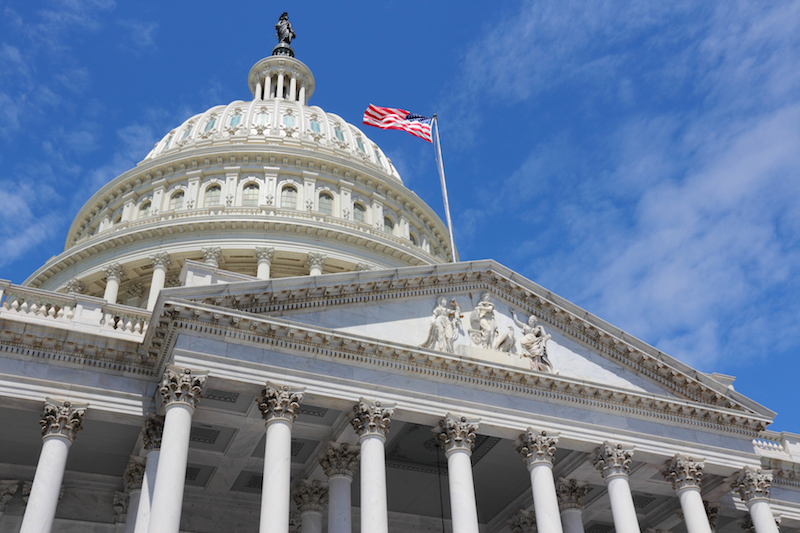
Deregulatory difficulties will reveal that rulemaking and judicial review are stringent enough without reform.
During the six years when Republicans controlled Congress and Barack Obama occupied the White House, Republican leaders proposed and the U.S. House of Representatives often enacted myriad “regulatory reform” bills. They had titles such as the Regulatory Accountability Act, Separation of Powers Restoration Act, and Regulations from the Executive in Need of Scrutiny Act. Each bill was based on a claim repeated ad nauseum by Republican members of the House and Senate: It has become far too easy for an agency to use the notice-and-comment rulemaking process to issue a rule, and courts have become far too willing to rubber stamp the rules that are issued through that process. Each bill was designed to make the rulemaking process and judicial review of the outcome of that process much more demanding.
We have heard little about the need for these legislative reforms to the rulemaking process since Republicans gained control not only of Congress but also the White House. In one sense that is surprising, since it is much easier for Republicans to enact regulatory reform legislation now that the threat of a veto by President Barack Obama has disappeared. Why has the process of legislative reform of the rulemaking process all but vanished from the agenda of the Republican-controlled House and Senate?
There are two obvious answers to that question. One is that congressional Republicans no longer have reason for concern that a progressive Democratic President will issue too many new rules. The other is that the legislative agenda is too crowded to accommodate regulatory reform legislation.
I think there is also a third answer: Republicans have faced the reality that their push for reform of the rulemaking process was predicated on a false claim. In fact, informal rulemaking—another name for notice-and-comment—is a lengthy, resource-intensive process, and judicial review of the resulting rules is extremely demanding.
Many studies of the informal rulemaking process have found that it takes an agency an average of five years to issue a rule and that courts reject about one-third of the rules they review. No rule can survive judicial review unless the agency can persuade a court that it is within the agency’s statutory power, consistent with the standards in the statute the rule implements, supported by adequate evidence in the record, and supported by adequate reasoning, including an adequate response to all well-supported comments that criticize the rule the agency proposed to issue.
The Trump Administration has discovered the truth about the rulemaking process. The U.S. Supreme Court has held that an agency must use the same process it uses to issue a rule when it rescinds or amends a rule, and that courts are required to apply the same tests when they review a decision to rescind or amend a rule that they apply when they review an entirely new rule. Thus it is that, for agencies in the Trump Administration to implement President Donald J. Trump’s deregulatory agenda, they must use notice-and-comment to rescind or amend any rule that was finalized and went into effect before President Trump took office, assuming the rule was issued through use of the notice-and-comment process in the first place. After agencies have completed that arduous process for modifying or repealing rules, they must each still be prepared to persuade a panel of three federal judges to uphold the product of their rulemaking process.
Now that Republicans in the Trump Administration have been forced to confront the reality of the lengthy and resource-intensive notice-and-comment process and the difficulty of persuading courts to uphold the results of that process, they are replicating the actions of the Democrats in the Obama Administration. They are attempting to avoid the notice-and-comment process as much as possible by relying on the statutory exemptions applicable to interpretative rules and policy statements—two categories of relatively minor rules that are often referred to collectively as “guidance documents.”
Agencies in the Trump Administration have enjoyed a lot of success in rescinding or amending rules that were issued as guidance documents without using the notice-and-comment procedure. The vast majority of the 1,600 rules the Administration claims to have eliminated either were exempt guidance documents—or they were proposed rules or even just rules that agencies planned eventually to propose but that never went into effect.
Most rules that have significant effects, however, were issued through use of notice-and-comment. The courts have rejected the efforts by the Trump Administration to rescind, amend, or suspend rules that were issued through use of notice-and-comment without first conducting a new notice-and-comment proceeding.
Thus, to implement its deregulatory agenda in the important context of rules that were issued through use of notice and comment, agencies in the Trump Administration must use the notice- and-comment process and then they must persuade a court to uphold any rescission or amendment that results from that process. So far, they have not been able to take any rescission or amendment of any significant rule fully through the rulemaking and judicial review process.
It will be interesting to hear the views of the heads of the agencies in the Trump Administration many years from now after they have experienced the frustration of trying to use the notice-and comment-process to rescind or amend the rules they consider unduly burdensome and then trying to defend those deregulatory actions in court. None of those Republican agency heads are likely to repeat the claim that congressional Republicans used over the last six years—namely, that the rulemaking process is undemanding and courts have rubber-stamped unnecessary agency rules.
The experience of the Republicans who head agencies will expose as a myth the recurrent claim that was the basis for the past efforts of congressional Republicans to “reform” the rulemaking process and judicial review of that process. Rather than repeating claims of the need to reform the rulemaking process, the Republican agency heads will likely blame the lengthy and resource-intensive nature of the notice-and-comment process and the demanding nature of judicial review for their failure to implement most of President Trump’s deregulatory agenda.
This essay is part of a seven-part series, entitled Regulation in the Trump Administration’s First Year.




